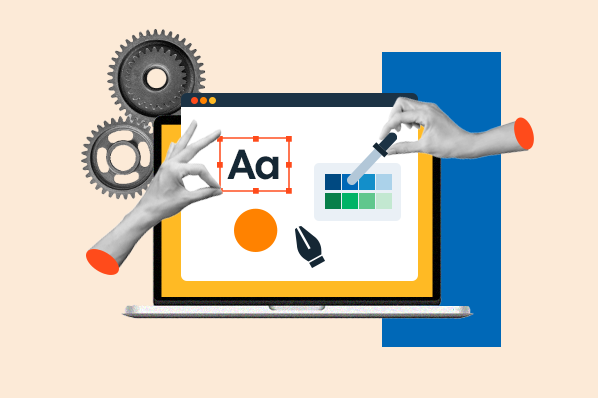
12 Compelling Reasons Your Business Needs a Website (And 5 Cases When It Doesn't)

Free website builder in HubSpot
Creating a professional website doesn't require extensive coding knowledge or a large budget. Modern website builders offer intuitive tools and features to help you establish an online presence quickly and efficiently.
Here are the 9 best free website builders for 2024, complete with their key features, advantages, and limitations:
1. Wix
- Pros: Intuitive drag-and-drop editor, 800+ templates, AI-powered design assistant
- Cons: Limited free plan storage, can't switch templates after publishing
- Best for: Small businesses and creative professionals
2. WordPress.com
- Pros: Extensive customization options, large plugin ecosystem, robust blogging features
- Cons: Steeper learning curve, limited features on free plan
- Best for: Bloggers and content-heavy websites
3. Weebly
- Pros: User-friendly interface, solid e-commerce features, mobile-responsive designs
- Cons: Limited free plan features, basic design customization
- Best for: Small online stores and portfolio sites
4. Site123
- Pros: Simple setup process, multilingual support, 24/7 live chat
- Cons: Basic design options, limited free storage
- Best for: Beginners and small business websites
5. Google Sites
- Pros: Google Workspace integration, simple collaboration tools, fast loading
- Cons: Limited design flexibility, basic features only
- Best for: Internal business sites and simple project pages
6. HubSpot Website Builder
- Pros: CRM integration, marketing tools included, drag-and-drop editor
- Cons: Limited template options, requires HubSpot account
- Best for: Marketing-focused businesses
7. Jimdo
- Pros: AI-powered website creation, fast setup, mobile-first approach
- Cons: Limited customization options, basic SEO tools
- Best for: Small businesses needing quick deployment
8. Strikingly
- Pros: One-page website specialist, modern designs, simple interface
- Cons: Limited functionality, basic free plan
- Best for: Personal portfolios and landing pages
9. Square Online
- Pros: Free e-commerce features, integrated payment processing, inventory management
- Cons: Square payment system required, limited design flexibility
- Best for: Small retailers and restaurants
Key Considerations When Choosing:
- Website purpose and goals
- Technical expertise required
- Scalability needs
- Budget for premium features
- Integration requirements
- SEO capabilities
- Customer support availability
Remember that while free plans offer basic functionality, premium features often require paid subscriptions. Choose a platform that aligns with your long-term needs and growth potential.
Pro Tip: Start with a free plan to test the platform's interface and features before committing to a paid subscription. Most builders offer seamless upgrades when needed.
